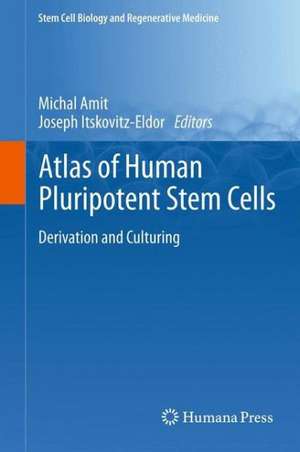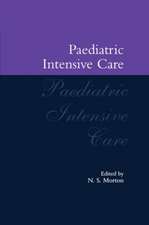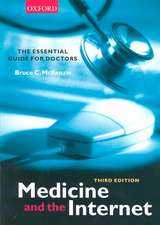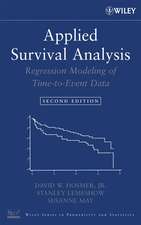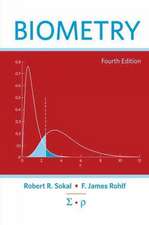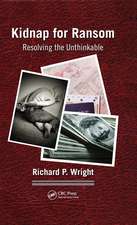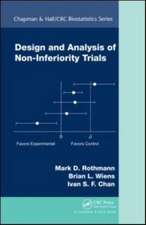Atlas of Human Pluripotent Stem Cells: Derivation and Culturing: Stem Cell Biology and Regenerative Medicine
Editat de Michal Amit, Joseph Itskovitz-Eldoren Limba Engleză Hardback – 18 noi 2011
The Atlas of Human Pluripotent Stem Cells - Derivation and Culturing will serve as a reference and guide to established researchers and those wishing to enter the promising field of pluripotent stem cells.
| Toate formatele și edițiile | Preț | Express |
|---|---|---|
| Paperback (1) | 690.11 lei 6-8 săpt. | |
| Humana Press Inc. – 23 aug 2016 | 690.11 lei 6-8 săpt. | |
| Hardback (1) | 942.63 lei 6-8 săpt. | |
| Humana Press Inc. – 18 noi 2011 | 942.63 lei 6-8 săpt. |
Din seria Stem Cell Biology and Regenerative Medicine
- 15%
 Preț: 641.71 lei
Preț: 641.71 lei - 18%
 Preț: 625.05 lei
Preț: 625.05 lei - 18%
 Preț: 958.07 lei
Preț: 958.07 lei - 18%
 Preț: 897.65 lei
Preț: 897.65 lei - 18%
 Preț: 1122.56 lei
Preț: 1122.56 lei - 18%
 Preț: 1118.62 lei
Preț: 1118.62 lei - 18%
 Preț: 1556.64 lei
Preț: 1556.64 lei - 18%
 Preț: 1222.31 lei
Preț: 1222.31 lei - 18%
 Preț: 1280.72 lei
Preț: 1280.72 lei - 18%
 Preț: 948.61 lei
Preț: 948.61 lei - 18%
 Preț: 1280.24 lei
Preț: 1280.24 lei - 5%
 Preț: 779.16 lei
Preț: 779.16 lei - 18%
 Preț: 1278.02 lei
Preț: 1278.02 lei - 18%
 Preț: 947.35 lei
Preț: 947.35 lei - 18%
 Preț: 949.55 lei
Preț: 949.55 lei - 18%
 Preț: 951.29 lei
Preț: 951.29 lei - 18%
 Preț: 953.65 lei
Preț: 953.65 lei - 15%
 Preț: 691.12 lei
Preț: 691.12 lei - 18%
 Preț: 1220.75 lei
Preț: 1220.75 lei - 18%
 Preț: 956.81 lei
Preț: 956.81 lei - 15%
 Preț: 643.16 lei
Preț: 643.16 lei - 18%
 Preț: 1229.91 lei
Preț: 1229.91 lei - 15%
 Preț: 693.71 lei
Preț: 693.71 lei - 18%
 Preț: 944.99 lei
Preț: 944.99 lei - 15%
 Preț: 692.74 lei
Preț: 692.74 lei - 18%
 Preț: 1222.01 lei
Preț: 1222.01 lei - 15%
 Preț: 696.18 lei
Preț: 696.18 lei - 18%
 Preț: 959.98 lei
Preț: 959.98 lei - 18%
 Preț: 963.91 lei
Preț: 963.91 lei - 18%
 Preț: 1380.47 lei
Preț: 1380.47 lei - 15%
 Preț: 690.44 lei
Preț: 690.44 lei - 15%
 Preț: 641.85 lei
Preț: 641.85 lei - 18%
 Preț: 1837.45 lei
Preț: 1837.45 lei - 15%
 Preț: 646.11 lei
Preț: 646.11 lei - 18%
 Preț: 1118.62 lei
Preț: 1118.62 lei - 5%
 Preț: 777.55 lei
Preț: 777.55 lei - 18%
 Preț: 1222.01 lei
Preț: 1222.01 lei - 18%
 Preț: 1241.73 lei
Preț: 1241.73 lei
Preț: 942.63 lei
Preț vechi: 1149.54 lei
-18% Nou
Puncte Express: 1414
Preț estimativ în valută:
180.39€ • 195.88$ • 151.53£
180.39€ • 195.88$ • 151.53£
Carte tipărită la comandă
Livrare economică 22 aprilie-06 mai
Preluare comenzi: 021 569.72.76
Specificații
ISBN-13: 9781617795473
ISBN-10: 161779547X
Pagini: 120
Ilustrații: XIV, 142 p. 105 illus., 88 illus. in color.
Dimensiuni: 155 x 235 x 15 mm
Greutate: 0.36 kg
Ediția:2012
Editura: Humana Press Inc.
Colecția Humana
Seria Stem Cell Biology and Regenerative Medicine
Locul publicării:Totowa, NJ, United States
ISBN-10: 161779547X
Pagini: 120
Ilustrații: XIV, 142 p. 105 illus., 88 illus. in color.
Dimensiuni: 155 x 235 x 15 mm
Greutate: 0.36 kg
Ediția:2012
Editura: Humana Press Inc.
Colecția Humana
Seria Stem Cell Biology and Regenerative Medicine
Locul publicării:Totowa, NJ, United States
Public țintă
Professional/practitionerCuprins
Methods for the Derivation of Human Embryonic Stem Cell Lines.- Morphology of Human Embryonic and Induced Pluripotent Stem Cell Colonies Cultured with Feeders.- Morphology of Human Embryonic Stem Cells and Induced Pluripotent Stem Cells Cultured in Feeder-Layer-Free Conditions.- Morphology of Undifferentiated Human Embryonic and Induced Stem Cells Grown in Suspension and in Dynamic Cultures.- Differentiation of Pluripotent Stems Cells in vitro: Embryoid Bodies.- Differentiation of Pluripotet Stems Cells in vivo: Teratoma Formation.- Immunostaining.- Karyotype Analysis of Human Embryonic Stem Cell and Induced Pluripotent Stem Cell Lines.- Method for the Derivation of Induced Pluripotent Stem Cells from Human Hair Follicle Keratinocytes.
Notă biografică
Michal Amit, Ph.D. is a senior scientist at the Sohnis and Forman Families Stem Cell Center, Faculty of Medicine, Technion - Israel Institute of Technology, Haifa. She obtained her Ph.D. degree in Medical Sciences from the Technion. In 1998 she trained at the University of Wisconsin, Madison, in embryonic stem cell (ESC) culture and derivation methods, at the time of the derivation of the first human ESC lines. At the Faculty of Medicine of the Technion she derived the first human embryonic stem cell lines in Israel, as part of her Ph.D. degree. Under grants funded by the National Institute of Health, Michal Amit was responsible for the Technion's ESC bank, which distributed hESCs to laboratories worldwide, and for establishing and running international courses on culturing ESCs. In recent years she directed the Stem Cell Infrastructure Center of the Technion and has developed culture techniques for ESCs using defined and animal-free conditions. She currently devotes her research efforts toward developing methods for the mass production of pluripotent stem cells, to promote research, clinical and industrial applications.
Joseph Itskovitz-Eldor, MD DSc, is director of the Department of Obstetrics and Gynecology at Rambam Health Care Campus and professor at the Faculty of Medicine, Technion- Israel Institute of Technology, Haifa, where he also holds the Sylvia and Stanley Shirvan Chair in Cell and Tissue Regeneration Research. He obtained an MD degree from the Hebrew University in Jerusalem and a DSc in Physiology from the Technion. While formerly an active researcher of assisted reproductive technnologies, his efforts have focused mainly on stem cells since his involvement in the isolation of the first human embryonic stem cell (hESC) line in Wisconsin in 1998. Subsequent to that breakthrough discovery, he established the first hESC laboratory in Israel and his team derived the first hESC lines in Israel in 2000. At that time he alsoengaged in collaborations in the US and Europe for the distribution of hESC lines, and assisted numerous research groups in establishing stem cell laboratories, some of which have become leading research centers. Joseph Itskovitz-Eldor has participated in numerous scientific and ethical forums worldwide. Between 2007 and 2009 he served as president of the Israel Stem Cell Society. He currently devotes his research efforts toward developing novel technologies for the derivation and culture of hESC for research and clinical applications, and exploring the potential of these cells to differentiate into various lineages. With over 300 scientific publications in the fields of fetal physiology, assisted reproductive technologies, and human embryonic stem cells, Joseph Itskovitz-Eldor is an internationally-acclaimed pioneer and a major contributor to the fields of reproductive medicine and stem cell research.
Joseph Itskovitz-Eldor, MD DSc, is director of the Department of Obstetrics and Gynecology at Rambam Health Care Campus and professor at the Faculty of Medicine, Technion- Israel Institute of Technology, Haifa, where he also holds the Sylvia and Stanley Shirvan Chair in Cell and Tissue Regeneration Research. He obtained an MD degree from the Hebrew University in Jerusalem and a DSc in Physiology from the Technion. While formerly an active researcher of assisted reproductive technnologies, his efforts have focused mainly on stem cells since his involvement in the isolation of the first human embryonic stem cell (hESC) line in Wisconsin in 1998. Subsequent to that breakthrough discovery, he established the first hESC laboratory in Israel and his team derived the first hESC lines in Israel in 2000. At that time he alsoengaged in collaborations in the US and Europe for the distribution of hESC lines, and assisted numerous research groups in establishing stem cell laboratories, some of which have become leading research centers. Joseph Itskovitz-Eldor has participated in numerous scientific and ethical forums worldwide. Between 2007 and 2009 he served as president of the Israel Stem Cell Society. He currently devotes his research efforts toward developing novel technologies for the derivation and culture of hESC for research and clinical applications, and exploring the potential of these cells to differentiate into various lineages. With over 300 scientific publications in the fields of fetal physiology, assisted reproductive technologies, and human embryonic stem cells, Joseph Itskovitz-Eldor is an internationally-acclaimed pioneer and a major contributor to the fields of reproductive medicine and stem cell research.
Textul de pe ultima copertă
Human pluripotent stem cells, including human embryonic stem cells and induced pluripotent stem cells, are a key focus of current biomedical research. The emergence of state of the art culturing techniques is promoting the realization of the full potential of pluripotent stem cells in basic and translational research and in cell-based therapies. This comprehensive and authoritative atlas summarizes more than a decade of experience accumulated by a leading research team in this field. Hands-on step-by-step guidance for the derivation and culturing of human pluripotent stem cells in defined conditions (animal product-free, serum-free, feeder-free) and in non-adhesion suspension culture are provided, as well as methods for examining pluripotency (embryoid body and teratoma formation) and karyotype stability.
The Atlas of Human Pluripotent Stem Cells - Derivation and Culturing will serve as a reference and guide to established researchers and those wishing to enter the promising field of pluripotent stem cell research.
The Atlas of Human Pluripotent Stem Cells - Derivation and Culturing will serve as a reference and guide to established researchers and those wishing to enter the promising field of pluripotent stem cell research.
Caracteristici
Provides up-to-date techniques in the field of embryonic and induced pluripotent stem cells Commences with practical aspects of the derivation and growth of human embryonic stem cells from inner cell mass blastocyst stage embryos Describs the principles of karyotyping and fluorescent in situ hybridization (FISH) methods in the field of pluripotent stem cells Includes supplementary material: sn.pub/extras
